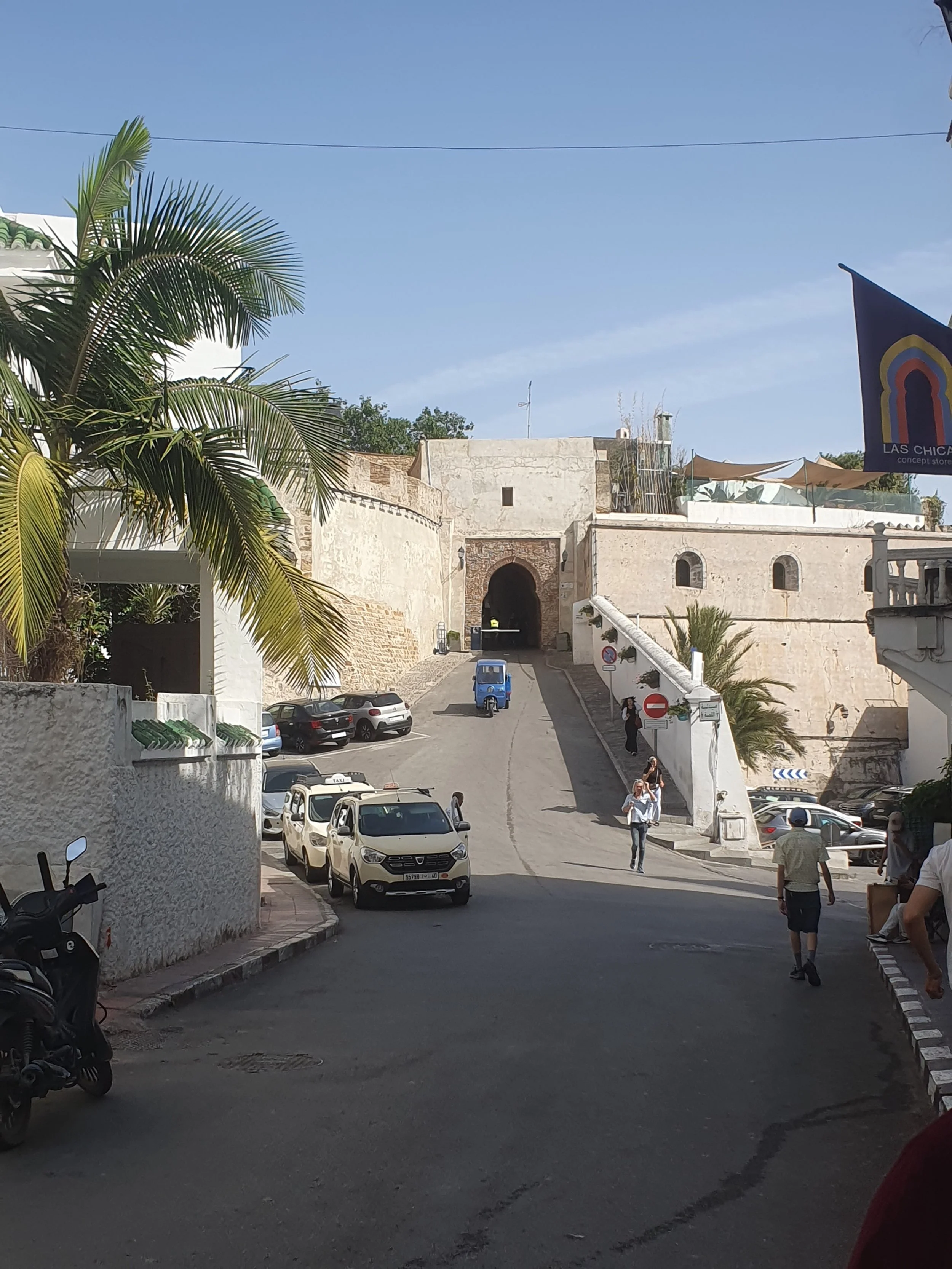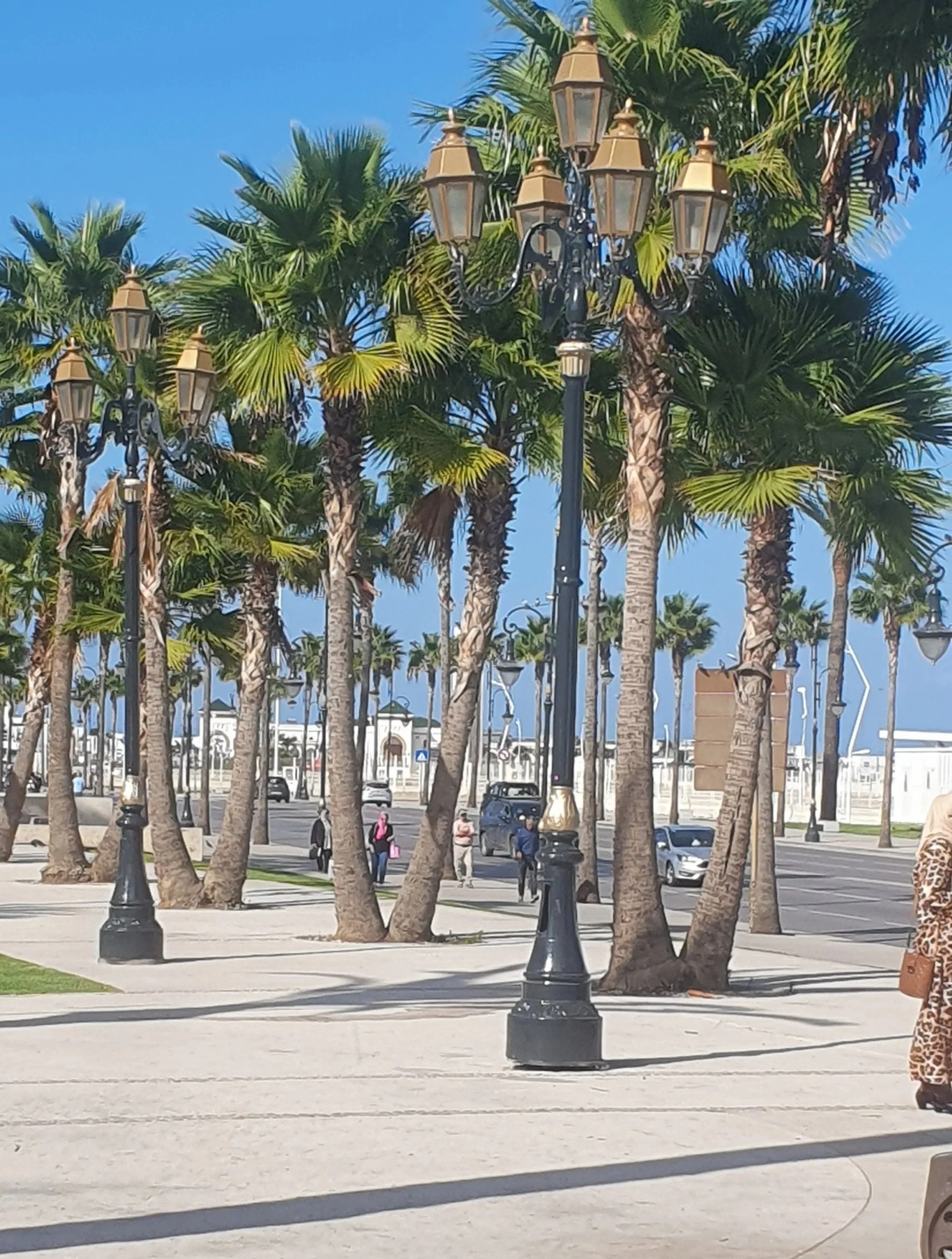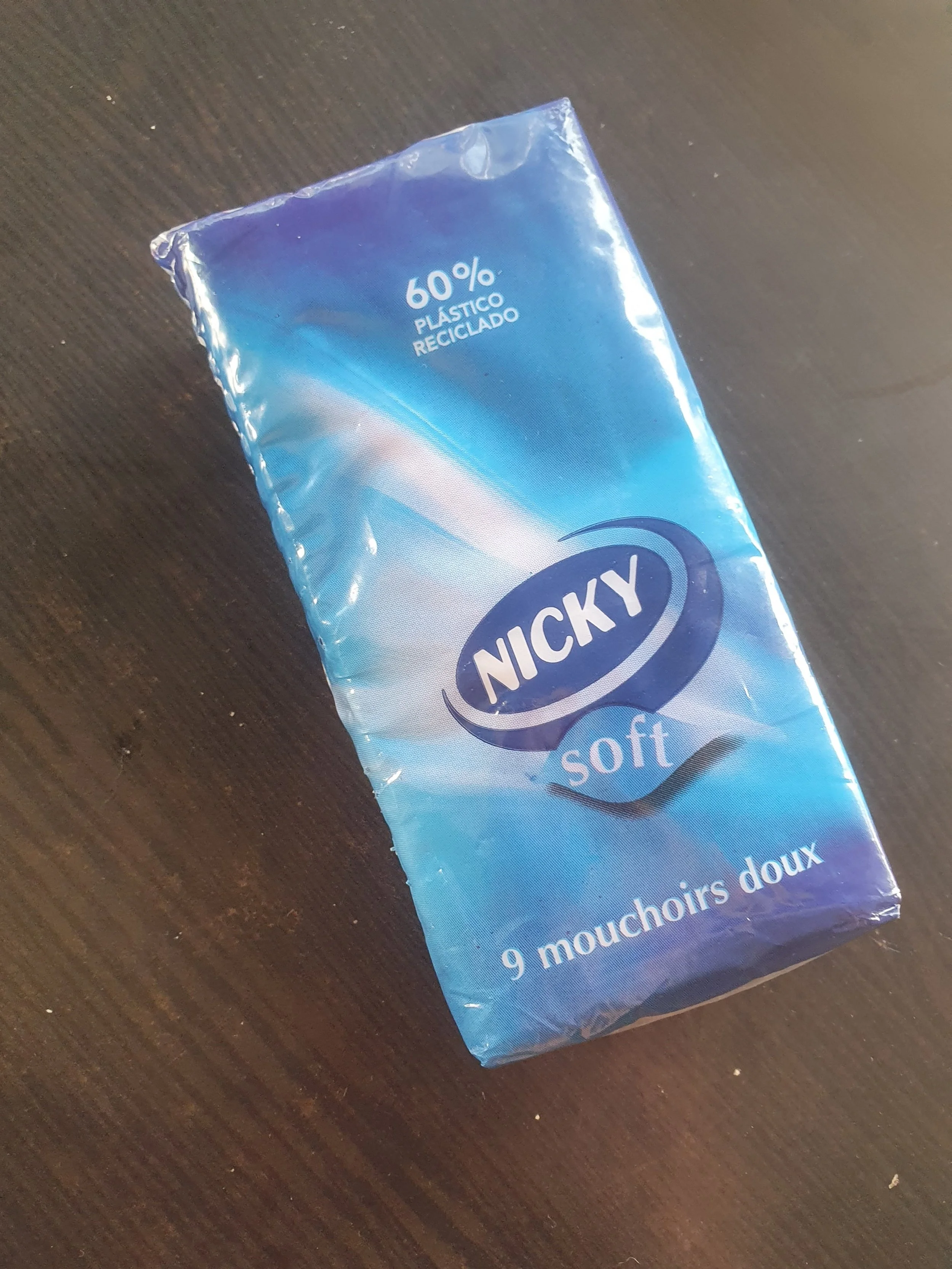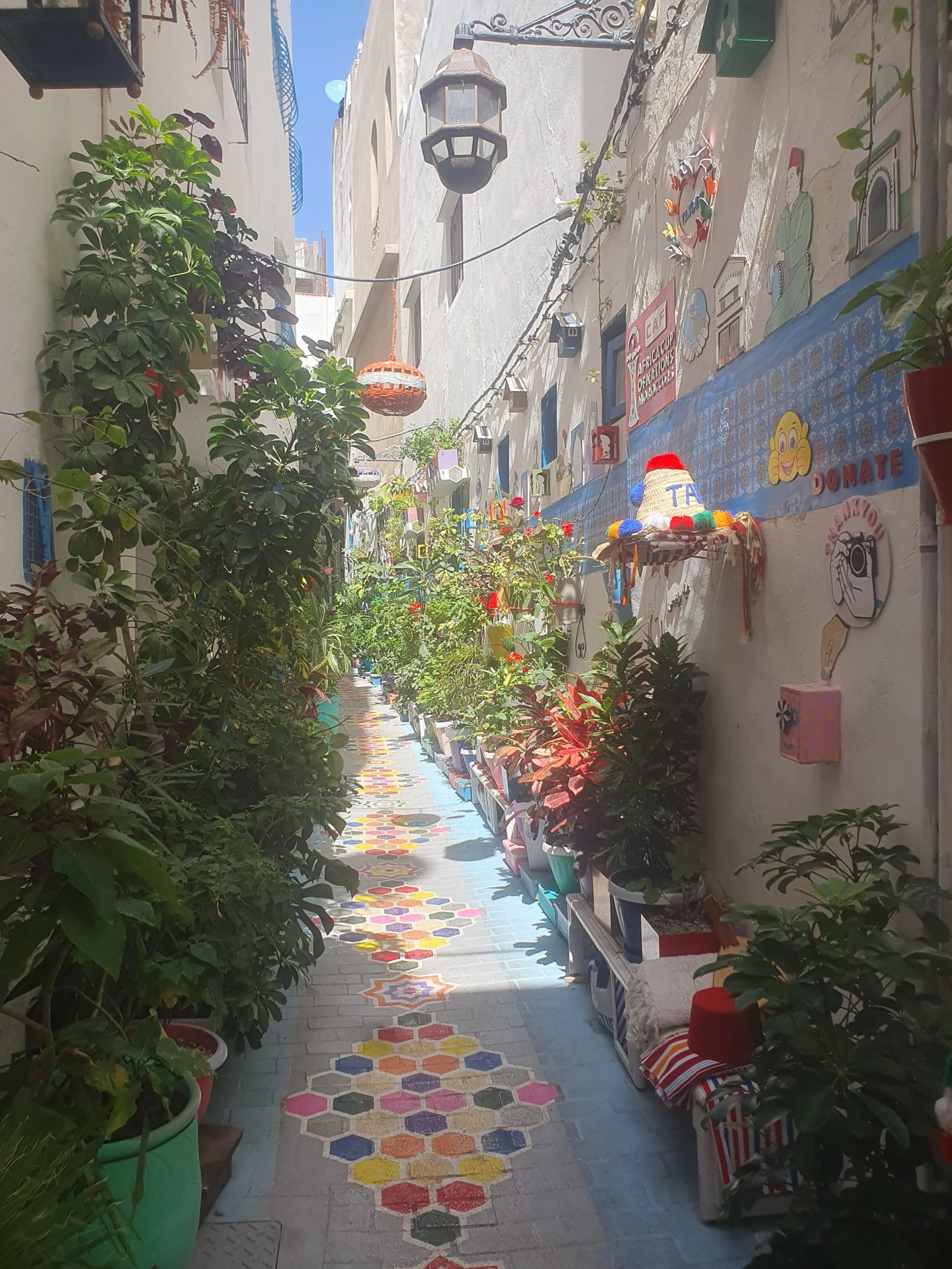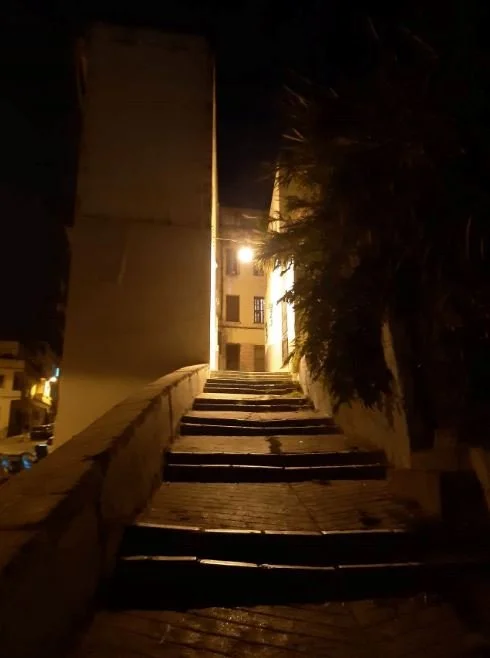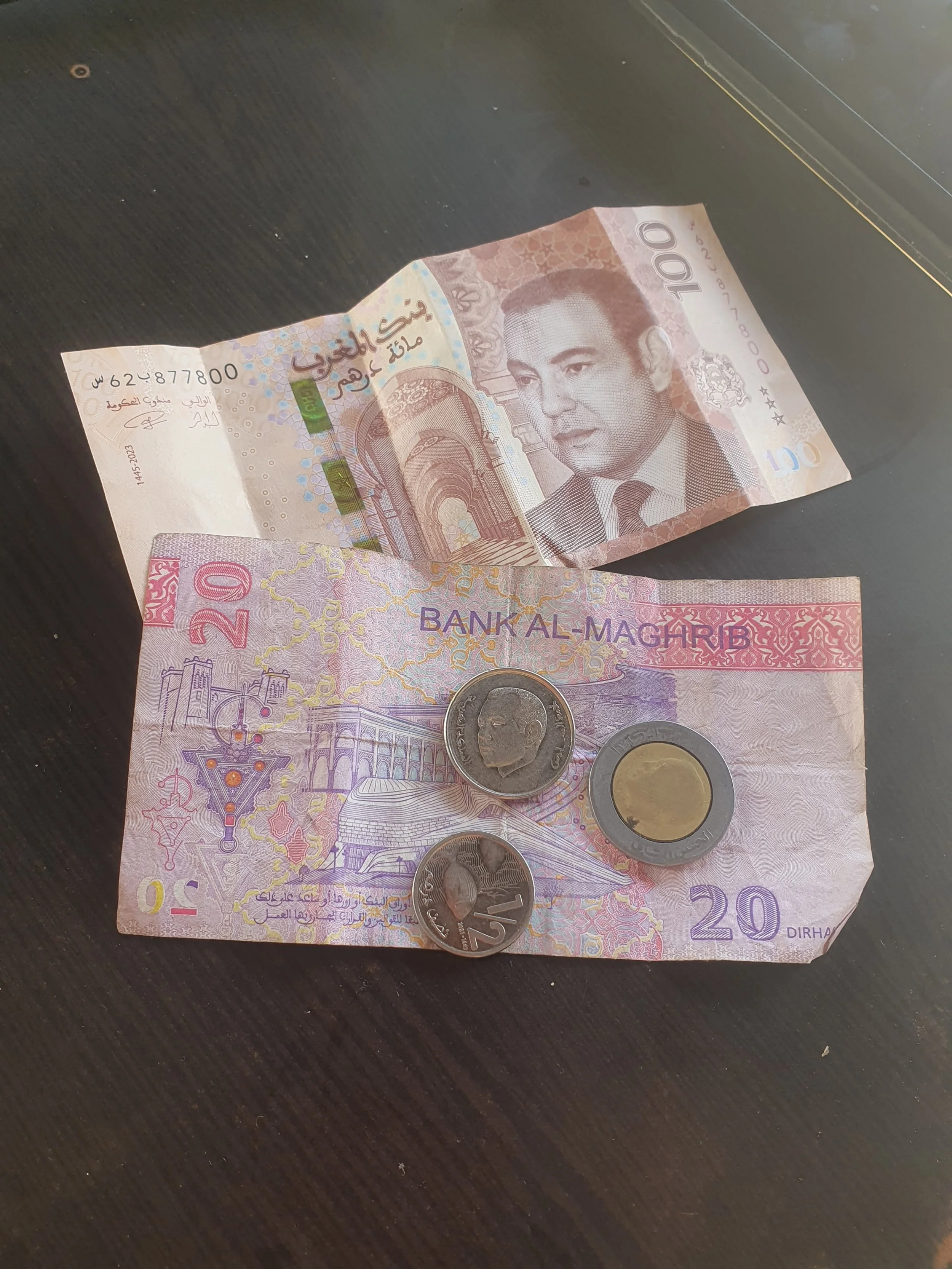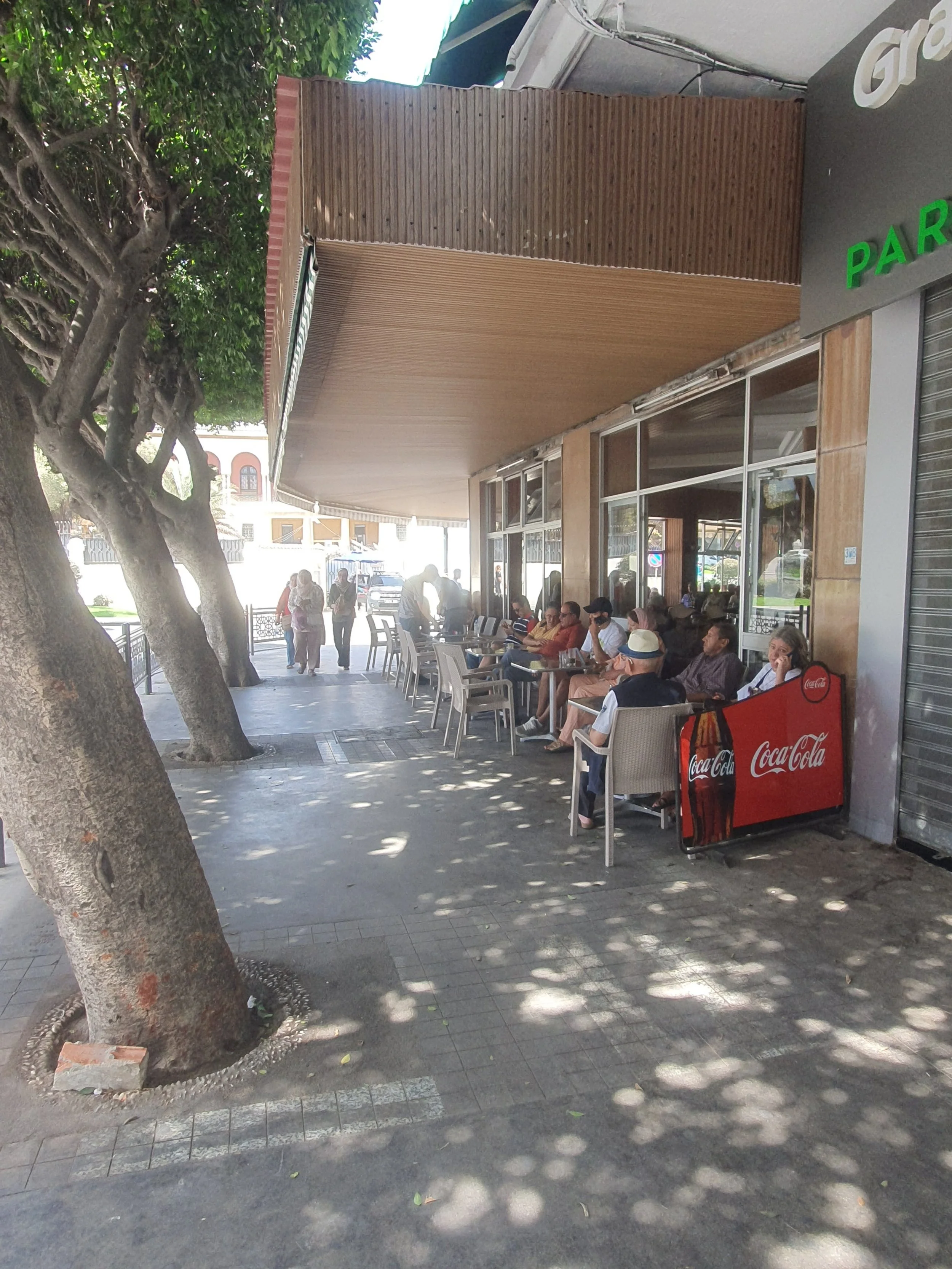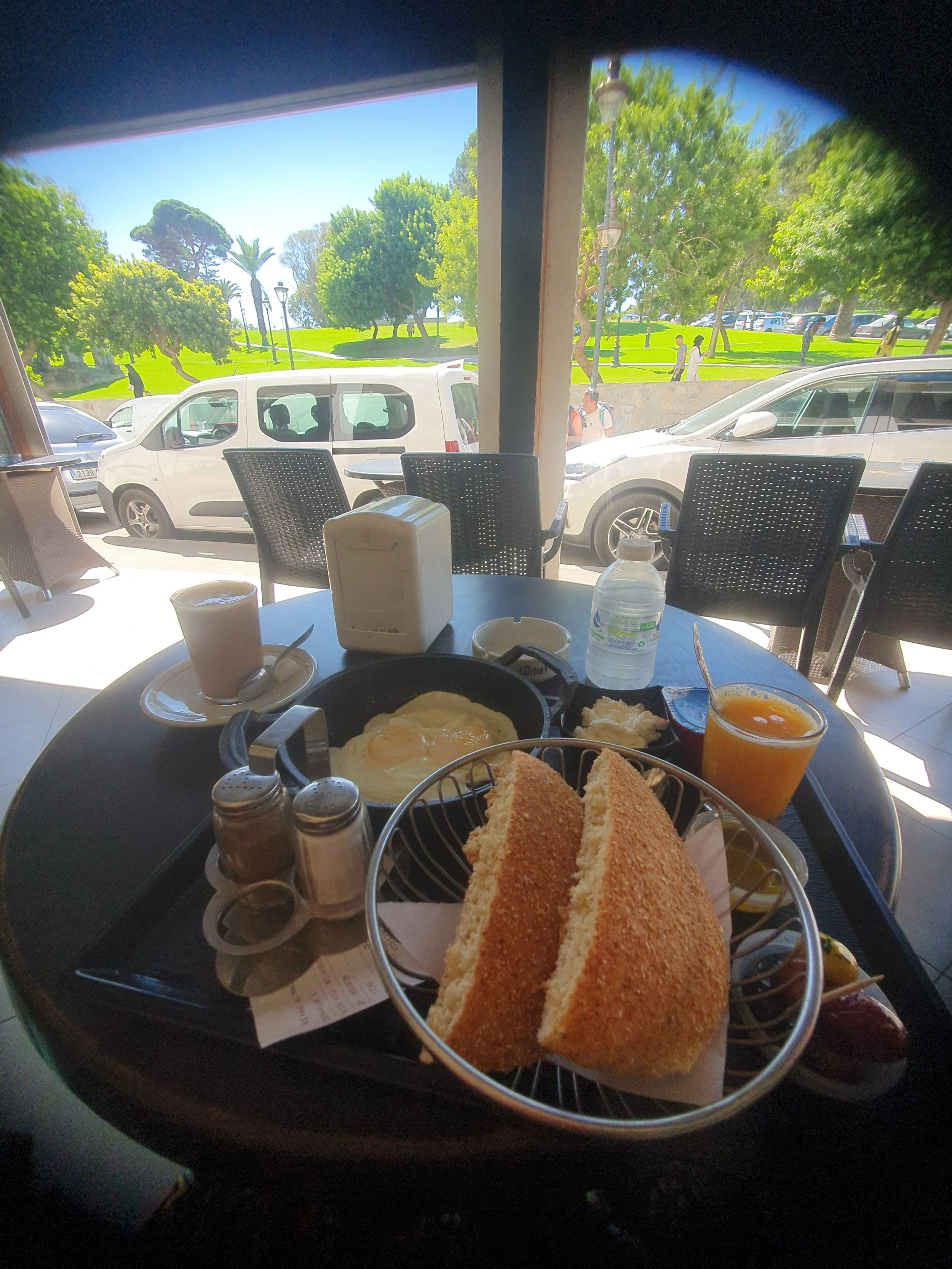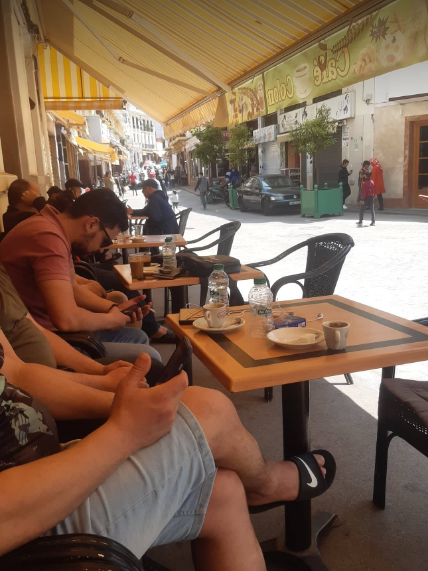Finding Toilets in Morocco
When You’ve Gotta Go…!!!
20 Things you Need-to-Know
Tips For Morocco - Tangier
Here are 20 Must-Know tips about Morocco (Tangier-specific) before you go – so to speak. 😉 Many people pass through Tangier (Walk With Me) and post their lists, but their information is superficial and often not very accurate, being based on generalisations about other countries. Morocco (Where’s where and where to visit) has a unique culture, and often differs in how things work compared to elsewhere.
Having lived in Tangier for 4 years, here are the real details of how to negotiate your way through Tangier and the Moroccan culture – the do’s and don’ts of Morocco, and other useful information.
Orientation in Tangier
New cities are often confusing, so let’s sort out Tangier. These major landmarks give you an orientation and points of reference, including a location to give to taxi drivers.
Medina – just means city centre, but often refers specifically to the old medina, the old walled city, typically with narrow winding alleyways of blank walls, all designed to confuse the enemy – and successfully confuses tourists and visitors even today. The locals know this, and often want to be helpful. If they lead you somewhere, a few dirhams is a nice gesture. Don’t stress about getting lost - enjoy the experience. Your GPS will usually sort you when you’ve had enough. Motorised vehicles (besides motorbikes) are banned. (Fes is the largest non-motorised city centre in the world, and has the largest medina.)
A night view - an endless maze of intriguing shapes, alleyways and photo opportunities. If you were ever curious about how cities were shaped several centuries ago, medinas still tell that story.
Kasbah – Means fortified castle, and in Tangier is at the top of the medina (I Sat on Henri Matisse’s Knee - a tour). A taxi to the Kasbah will get you to the top of the medina and the Kashbah gate.
A view of Bab Kasbah - the Kasbah Gate - leading into the medina at the top. The steep street down to Grand Socco is on the right.
Petit Socco – Literally ‘small market or square’, the name of the square in the middle of the old medina where you find Grand Café Centrale and Café Tingis and Cafe Fuentes (Tangier’s Toulouse-Lautrec ).
Grand Socco – ‘Big square’. Walk uphill from Petit Socco to the open area with the fountain, and mosque, and Cinema Rif (Foreign Movies Filmed in Morocco) – a good location name to use for taxis.
Grand Socco: With the edge of the fountain on the left, the white arched gate leads to the steep street which runs along the outside medina wall up to the Kasbah. The gap between the buildings is your main street into the medina, directly to Petit Socco. Just right of the photo is another gate into a building - this is Souq Barra, your markets. Follow it to the right and you go past the olives, fruit and vegetables, chicken, meat, and finally the fish markets.
Gran Café de Paris – Keep walking uphill on the left side of Cinema Rif and you will find this Art Deco classic café that always reminds me of the movie Casablanca at the next fountain – also a good location name for taxis, and a nice spot for a tea or coffee (Secrets Behind the Movie Camera).
The Boulevard – The big street where Gran Café de Paris is.
Boulevard at night, right next door to Cafe de Paris and Le Coeur de Tanger (Night Life in Tangier) - a part of Tangier that never sleeps. This is about 9pm - on a Sunday, looking over the canons (It’s like this still at 2am an later). There’s a great view of Spain from the canons most days. This space is called Sur Magasin - or the Lazy Wall…
The Corniche – The even bigger street that runs along the waterfront.
The Corniche near the base of the medina, Hotel Continental and the ferry terminal.
Looking over the Corniche, its broad walkway, and the Marina beach and bay across to Tangier’s casino. The white buildings on the left include Churinguito, a nice spot for an elegant drink to a medina sunset - and decent food.
1 When You Need a Toilet
Cafes will have toilets (nicer cafes will have nicer toilets), but these can be daunting for the fledgling visitor, especially if the need becomes urgent in a public place – they often require a bit of a trek. They may require a key, they may be squat style, and probably have water and a bucket for rinsing, but no paper. When it’s urgent, they all do the job. But if you have space for planning here are two nice ones – with paper.
Cinema Rif – Cinema and café, this is a great landmark that everyone knows, and a nice spot to stop for a tea or coffee and sit on your way past in Grand Socco.
Bathroom at Cinema Rif - This is one of my trick visits with newbies in town. What is wrong with this picture….?
Hotel El Minzah – Between Grand Socco and Café de Paris, on your left you will pass the small entrance to this fancy hotel, where many film stars and other famous people have stayed. Walk in with confidence, down the steps and around to your right. In the courtyard there, you will find very nice toilets.
Not to freak you out, but these are the kind of toilets you might encounter, that are the norm in many parts of the world. Most cafes have western style toilets, but you may encounter one of these - forewarned is fore-prepared. The biggest factor is that Moroccans clean with water, which splashes everywhere (my friend’s phrase for this is ‘mooshy gooshy’) and there is nowhere to hang your bag. At least they smell better than many public toilets I’ve been to.
2 Tissues
You will very quickly discover there is no toilet paper in most toilets. You will need your own supply. There is a regular supply of people roaming the streets or sitting in their spot on the footpath selling small packets of tissues. The usual price is 2 dirhams – I usually buy 2 packets and give them 5 dirhams. Clearly these guys don’t make much, and I like to support them.
I never buy from the children. Much as I feel sorry for them, they pester unpleasantly, and buying from them will make no difference to their lives. At the end of the day they will still get badly treated by the people that control them.
You can also buy packets in little shops, but I prefer to support the ones who are trying to get a little extra.
Another thing worth being aware of is a complete lack of anywhere to put anything - your phone, wallet, or bag. Pockets and shoulder bags are handy. My main trick is to put my phone and purse into my skirt and hold it up into a pocket with my mouth. This can be a little tricky. The last thing you want is to drop your phone onto a wet floor, or into the toilet! The guys may have even more trouble with this technique, being less likely to wear a skirt (unless you go native and wear the local djelaba) - but then, pockets are more common in men’s clothing. But pay attention to phones dropping out of pants pockets when loose!
It is easy to plan for this, though - have a shoulder bag or a bum bag so you’ve got somewhere to put everything and are hands-free. But when you’ve gotta go, you’ve gotta go, and in the end, they all do the job.
3 Toilet Etiquette
Be mindful that most toilets in Morocco don’t have sewerage systems to adequately dispose of paper. The pipes are too narrow, and even toilet paper will clog up the system and cause the toilets to be blocked and unusable. Throw your used toilet paper into the bin provided. Before you dismiss this as backward, keep in mind that the Islamic way is to wash with water and the left hand (hence a preference for the right hand when eating). To them – a very clean culture – using only toilet paper is not very clean.
4 Dress Code
Morocco is a Muslim country. It is respectful to cover your shoulders, cleavage and knees. In the touristy areas such as Tangier medina, the locals are pretty relaxed and you can get away with almost anything, but you won’t be respected and may earn extra catcalls. There is no need for head scarves or any other coverings. I usually wear a long scarf which I pull over my shoulders.
I wear dresses below my knees, and I always wear a scarf which I pull over my shoulders when I’m out. My mini skirts I save for winter when I can wear black leggings to cover my knees. The hats are just my thing. But any variations that cover knees and shoulders are fine, including jeans and pants.
5 Personal Safety
You may get hassled – this happens in many countries. But Morocco is one of the safest countries I have been in. Don’t let media hype and western normalities override, and keep in mind that a bit of hassling is not the same as being in danger.
In most western countries, if a man is asking your name and where you are from you are already in trouble. In Morocco, especially Tangier, he is literally being friendly and curious, and probably hopeful that you will be interested in his carpets. Simply ignoring someone is fine. I usually just say hello with a smile and keep on walking: Salam.
Some streets in the medina you might stumble across.
The narrow medina streets in Tangier are safe. I have walked alone all over Tangier at all hours of the day and night, and my space has never been compromised in the medina. Media gaslighting and safety rules from my western culture had me very nervous my first two nights in the Tangier medina. The streets were narrow and dark, and guys were hanging around.
But then I noticed that they literally were just hanging around - because it was nicer outside than inside, easier to meet friends, and nobody was interested. I realised that the medina streets are safe, and over time that even late at night in the streets outside the medina, it is safer than many places I’ve been.
If for any reason someone intrudes uncomfortably on your space, simply react loudly. People will come – they are everywhere. Most Moroccans are extremely offended by such behaviour. You are much safer in Morocco than you probably are in your home country. You are just used to the familiar conditions of home. Asking you for a tea in a rug shop will be just that.
Not dangerous, but an intriguing alleyway at night, and good for different light effects and photos without people in the way. This one lead up to my flat - residential and quiet, and never a problem at any hour. Footsteps coming up behind you are just someone in more of a hurry to get somewhere than you are.
6 Theft
While not very common, it can happen occasionally. But I normally walk around with my strap bag hanging over my shoulder, and have never had a problem. When in crowded places, it isn’t smart to have your purse or phone at the top of an open bag anywhere in the world. This is a far worse problem in Europe, such as places like Barcelona and Italy. I have never had a problem in Morocco – although I would be careful in Marrakech’s Jemaa el Fna Square. But the most likely scenario if you leave your phone or purse somewhere is that you will be chased for its return.
A glimpse of lovely tile-work when passing an open door into an apartment building.
7 Cash is King
Morocco is one of the highest cash-usage countries in the world. Most places don’t take cards (outside big hotels and fancy restaurants), so you will need cash. It is also a closed currency, which means you are not allowed to leave Morocco with dirhams. You will find it very hard if not impossible to find dirhams before you arrive, or to sell them after you leave.
There are lots of ATMs everywhere, especially in touristy areas. They usually have a fee of 35 dhs (€3.50). Make sure of the exchange rate first, by looking up your desired cash amount (eg 2,000 mad ) on a google search. Moroccan dirhams are MAD (Maghrebi dirhams), not to be mistaken for dirhams in other countries (much to my disappointment following a job offer).
I find a much better rate from my euros account. From AUD there is a built in $20-30 AUD in the exchange rate, with my bank charging another $20 AUD of fees from my account. You can usually see the exchange before you complete the transaction, but not always.
Farm ladies from the Rif selling herbs and vegetables fresher than any shop at home.
Withdraw larger amounts less often to minimise this cost, but your dirhams will give you good milage. 2000dhs will go a long way unless you make a big purchase, like a rug. Also don’t “accept the conversion” - say no. The conversion usually has extra fees. Typically meals are just €7. I’ve found the Banque de Afrique has good rates, near the exchange. Let me know which ones you had the best rates.
Alternatively, you can bring cash with you to exchange at the bureaus which have good exchange rates. They are also everywhere in the tourist areas. Main currencies are accepted – definitely Euros, USD and English pounds, so no need to change before you arrive.
Airport exchange is expensive, but the taxis from the airport (€15 or €20 in Tangier depending on your destination) will accept euros – probably also USD and pounds. If you arrive by ferry, there are ATMs at the port on your way out of the building.
Dates - the pick is the mezjool dates. This is a treat you should not skip!
Make sure you change your money at an exchange bureau before flying out of Morocco – the airport exchange rates are not good, and the chances of selling your dirhams once you leave will be extremely small. They may ask for proof of changing the money in the first place, so keep a couple of receipts.
Another oddity about Morocco is that you will be constantly chasing the small coins. Almost everywhere else I’ve been, the coins become a heavy problem and I find myself pushing to get rid of them. In Morocco, if you only have big notes - even 50dhs, it is more likely that you will have to wait while the vendor gets change from a neighbour. Being caught with a 100dhs note for a short taxi ride, for example, or wanting to buy some fruit or a small souvenir for just a few dirhams.
There is also a green 50dhs note, and watch out for the 2 dhs coin, almost the same as the 1dhs coin. The 10dhs coin has a gold rim, the opposite of the 5dhs pictured with the silver on the rim.
Notes: 200 dhs - blue, 100 dhs - orange, 50 dhs - green, 20dhs - purple
Coins: 10 dhs - gold rim, silver centre, 5 dhs - silver rim, gold centre, 2 dhs silver with angled inside edge, 1 dhs - silver, ½ or nos - silver.
8 Tipping
Morocco is not customarily a tipping country – most Moroccans don’t tip. But their wages are very low, so I routinely tip 10% at all cafes and restaurants, as do most foreigners I know - but not all.
You pay the waiter who serves you. If their shift is ending, you will need to pay them before they leave even if you haven’t finished.
Don’t expect the level of service you may be used to – the service will be sometimes very slow (except in Marrakech where I found the service above exceptional!) Treat this as part of the culture. If you want the same service as at home, stay at home.
Gran Cafe de Paris across from the French embassy - popular with tourists, expats, and locals, and an excellent landmark, on the Boulevard.
9 Buying Souvenirs
On the whole, there is a high level of honesty in Morocco. If you drop your wallet or phone, someone will probably chase you to give it back. But the tourist shops may vary. Don’t buy at the first shop you see something – ask the price, and if on the second or third ask the price is the same, then make your purchase. It is always worth confirming the price first before you order – don’t assume. And feel free to bargain in the market places and tourist shops.
for sourvenirs, I absolutely love the ceramics - but it just won’t fit into my backpack. I had to give my two beautiful bowls away.
10 Taxis
Each city has a different taxi system with different owners. In Tangier, the blue taxisare share taxis and very cheap for short distances (Getting Around in Tangier - Transport) . You say where you want to go, and the driver will accept you if it fits with his other passengers.
A blue share Petit Taxi. Every city is run differently.
Most in Tangier are good and decent hard working people, but like everywhere, not always. Make sure the meter is on. It has a separate meter for each ride, 1.60 flag fall (2.40 after about 9pm). The fare is one for each group. If your ride is 10dhs, you pay 10dhs whether there is one, two or three of you. Their maximum capacity is 3.
Minimum fare is 7dhs, even if it’s a very short distance. At night it is 1 ½ times, so a 10.50 dhs minimum fare (from about 8 or 9pm). From Café de Paris to the train station should be less than 10dhs. From the below the Continental Hotel/across from the ferry, about 12dhs.
11 Restaurant Caveats
Some restaurants may also try tricks. I found this especially in the Jemaa el Fna Square in Marrakech, but also a couple of spots in Tangier – the ones in Grand Socco that pester you with menus. It is normal for bread and olives to be brought as part of the meal, but some may also bring salads and other extras, then ask you to pay for them even though you didn’t order them. If there is ever a situation, a solution that invariably works is to suggest asking the police. If they are taking you for a ride, this invariably solves everything on the spot.
This is my favourite restaurant, and top of My Top 10 Food Spots in Tangier. - The Syrian, or Abou Tayssir. Mixed dips (humus, baba ganoush, and the yoghurt baba ganoush), and the fatoush salad.
12 Water
Any blanket statement that the water in Morocco is undrinkable is wrong. It varies by the city, and you need to ask. I can guarantee that Tangier water is perfectly okay from the tap. I have been drinking the tap water in Tangier for 4 years! Chefchaouen (The Blue City) has excellent water – it comes down from the mountains.
But check this city by city. I often ask the locals whether they drink the tap water to get a real answer. I don’t like contributing to the plastic waste of the bottles.
I drank tap water in Fes, and Erfoud in the south. In Agadir at the time I was there it even smelt bad, so I most certainly didn’t drink it, but this may have changed. I think Marrakech is a place that bottled water might be better. Just ask in each new location.
Water comes with tea and coffee. Tourists are usually given a bottle, but in Tangier I ask for tap water and drink from the glass.
13 Food Safety
The food is also good in quality, especially in the little shops such as the ‘sandwich’ shops. As with everywhere, see who goes there. If lots of locals do, then the food is good. The locals already know where the good places are. These shops are small, so they have a high turnover with fresh food daily.
When I first came to Morocco I read that there was no refrigeration, and the food was unsafe! Morocco is not in the depths of Africa or Asia. It is a modern and developing country. In fact, the only place I have bought bad meat in Morocco was at one of the big supermarket chains (There are two, Carrefoure and the Moroccan one Marjane). I avoid these shops because they are expensive and their vegetables are not good quality.
The vegetables at the little shops, the markets, and being sold by the ladies with the red and white striped aprons, were probably still in the ground while you were eating your breakfast. The meat was walking until it was needed. And the fruit in Morocco is amazing!!! The little shops around the medina in Tangier are honest with their prices, and some now show their prices. Pick your own so you know what you’re getting. But don’t be shy – fruit, dates and nuts. Food quality in Morocco is good.
If you need anything else, the little shops – by law – are cheaper than the big supermarkets, and more convenient since they are everywhere.
Breakfast before I get into work.
14 Eating with your Hands
Morocco is a tourist country and accepting of your ways. They will automatically bring cutlery. But if you want to try the Moroccan way of eating with your hands, it is easy – and fun. Just tear off a piece of bread and use it as a spoon with your fingers. Watch how they eat, but there’s not much of a trick to it. Just use your thumb and first two fingers. It is even considered good luck to lick your fingers! Oh, and use your right hand.
As I said, Islam is a very clean religion. There will usually be a basin to wash your hands before and after eating. And you won’t be given salt and pepper – it is salt and cumin, with vinegar and very virgin olive oil. You can always ask for more bread.
Best way to do it right - be too hungry to care and just do it without thinking.
15 Cafes
You might feel intimidated by cafes full of men, and confronted by rows of them lined up with their backs to the front wall of their café. But there is nothing wrong with a woman going into a café. Generally, they simply spend their time elsewhere, and the men go to the cafes. You will probably be looked at, but it is purely curiosity, not taboo. In my experience, the best tea and coffee is the cheapest, and to be found in these cafes.
Besides, the Moroccan mint tea is a must-try. Just be aware that it comes very sweet. You can ask for it without sugar – bla sukkar. They may argue that they can’t do that, but they can. Be firm and you will get what you want. Go to one of these cafes, sit for a little facing the street and watching the world pass by. This is one of my favourite parts of Morocco.
I no longer even notice that most cafes are just men. But I do enjoy to sit and watch the world go by. Cafe Colon.
16 Wifi and Data
If you don’t have roaming data, you have 2 options in Morocco. Most cafes, restaurants, and accommodation will have free wifi – just ask. Google maps and5 info can be downloaded for use offline. The wifi in most parts of Morocco is good.
You can also buy data. There are three companies – Orange, Inwi and Maroc Telecom. They are all pretty much the same. For about 50 dhs (€5) you can get 10gb of data. There are little shops everywhere which can sell this – just look for one with phones, or ask. (The airport charges double.)
17 Friday and Couscous
Morocco’s Sunday comes on Fridays – the big day in Islam. This means some businesses may be closed for the day or part of it. Don’t stress – Friday is couscous day. Go and find a spot to try this national dish. If you get out of the medina, you can get it for 30-50 dhs. If you want, you can ask for more of the sauce to pour over it.
18 Ramadan
Before your trip, check when Ramadan is. It is a lunar event, and changes by about 2 weeks every year. It is not so much a fun cultural feature. Just like Christmas Day in the west, it is mostly a family event, not a public one.
During the day in Ramadan, most restaurants, cafes and food shops will be closed, especially outside the medinas and touristy places. The few cafes open (Grand Café Centrale in Tangier is the main one) will be crowded since the usual range of options aren’t available. Opening hours also tend to be shorter. At night everything opens up, and after f’tour (breakfast) the streets come alive. But all bars will be closed, and some cities (like Fes) will be completely dry for the entire month, if that matters to you.
19 Beggars
Beggars are a worldwide problem, with variations by country. Morocco is generally a poorer country, but people usually look after each other. There are some who are down on their luck, but over time I have realized that most beggars are just playing on guilt tripping tourists, and I can’t usually tell the difference up front. I would like to give, but most of them are variations on scams. This is obviously a personal choice, but over time I have decided not to give to beggars – ignoring them is usually the best approach. Instead, I give by always tipping – even for a 10dh tea – and giving to buskers. And I will give food (most refuse).
20 Street Cats and Dogs
Morocco has loads of street cats. They are generally well looked after, fed and patted by the locals who save their table scraps and buy tins of food for them. There are less dogs, but they are also safe. They are vaccinated for rabies, and have a yellow tag in their ear so that you know they are treated. As an ex meter reader needing to be very careful of dogs in back yards and bitten twice, I can assure you that I have never felt alarmed by the street dogs in Tangier. The cats are so at ease that I have even seen them sleeping peacefully in the middle of a pathway with feet stepping within inches of them – they know they are safe.
Having made these warnings, while these things can happen, they are not the norm in Morocco. Moroccans are friendly and welcoming and generous people. They would invite you home to eat the last of their food before letting you starve on the street. Several times when I have seen a lady fall over, she is immediately surrounded by 4 or 5 people, given a chair to sit on, a glass of water, and they will stay with her and chat to her till they are sure she is ok, and only leave when she is ready to get up and go.
This is a list of need-to-know things to save you confusion when you are first here. Morocco is a delightful place to visit, with a very different culture. It is full of colour and delights, with people who are friendly and welcoming and generous. Come to Morocco – without fear – the most likely disaster is that you will have an exceptional holiday and need to save up for a return visit!
A day when Spain is only a pale blur - that is not just cloud.

